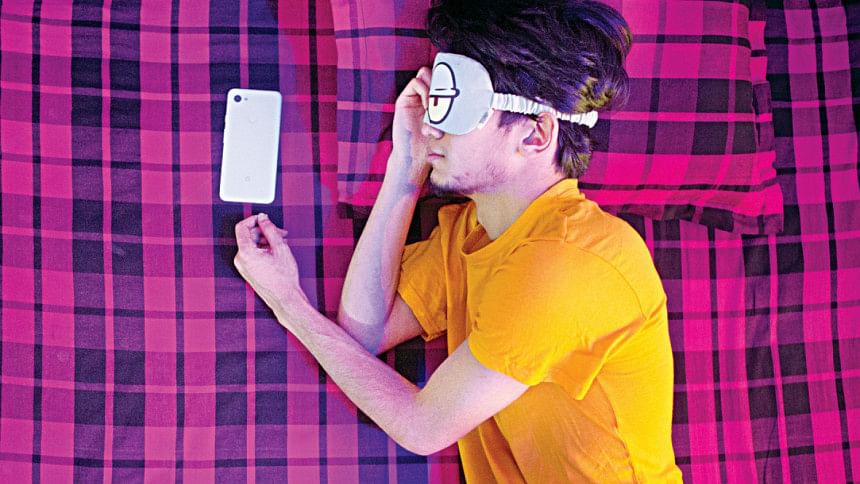What makes some sleep good, and some sleep bad?

You open your eyes and find yourself in the exam hall. Only half an hour remains and your paper is still blank. Frantic, you try to write whatever you can but your pen just won't let you. And it's only 5 minutes till the end of the exam.
TRRRR.
The bell sounds. Oh, it's just the alarm. Thank God. It was just a nightmare. This cannot happen in reality. So you vow to sleep well and early. But you're all tired and groggy and lack the will. All these show that you're a bad sleeper. And if this continues, that nightmare might not be a nightmare next time it happens.
Our body has an internal system built over time according to our exposure to light and dark. It's called Circadian rhythm. The sleeping pattern incorporated in that system is our sleep cycle.
Sleep cycle and its fluctuations are associated with brain function, body mass index, obesity, diabetes, cardiovascular function, and a host of other health complexities. As such, the necessity of "good" sleep cannot be overstated.
When sleep interferes with the sleep cycle and leaves you feeling groggy instead of refreshed, it's termed as bad sleep. Surprising as it might sound, the main cause of bad sleep is untimely napping, especially towards late afternoon.
Our body generates what neuroscientists call "sleep pressure", or homeostatic sleep drive throughout the day, so that when we go to bed at night, we can get a proper rest from the stress. Taking naps in the daytime disrupts this accumulation of sleepiness. Although a 50-minute nap doesn't hurt, more often than not we end up napping for longer periods of time. This is the reason why many people find it hard to fall and/or stay asleep.
Sometimes, before an exam, we study the whole night and manage to get sleep for only an hour or two. And to shake off the slumber, we douse ourselves in caffeine. However, this is counterproductive. Firstly, because our brain won't retain what we've studied so painstakingly. Secondly, we won't perform properly on the test. And finally, we might end up sleeping through the test.
Another tendency is oversleeping to make up for the nights we missed. This does more harm than good, because then our entire cycle goes awry. We can't make up for lost sleep.
But what we can do is to integrate some habits in our routine. First of all, we need to be regular in our sleeping pattern, maintaining a specific time for going to bed and waking up. Daily naps should be avoided or otherwise be limited to 40-50 minutes. Oversleeping should also be avoided.
Melatonin, a hormone that helps maintain healthy sleep timing, is released in a darker ambience. At least an hour before sleep, we should refrain from using devices that emit blue light. Illumination should be minimised in the room we sleep. Moreover, a relatively cool temperature promotes good sleep.
Consumption of fluids immediately before sleep is highly frowned upon as it would draw more water from the body, increasing the number of trips to the toilet at night.
Bad sleep is robbing us of a lot of things without us being aware of it. It's never too late to take back control of our sleep cycle, and ensure that our dreams are colourful and we have the resilience to make our dreams come true.
Reference:
Why We Sleep by Matthew Walker
Abdullah gracefully drowns in the proses of Joyce, Dostoevsky, Proust, Faulkner. Call him ashore at [email protected]

 For all latest news, follow The Daily Star's Google News channel.
For all latest news, follow The Daily Star's Google News channel. 








Comments